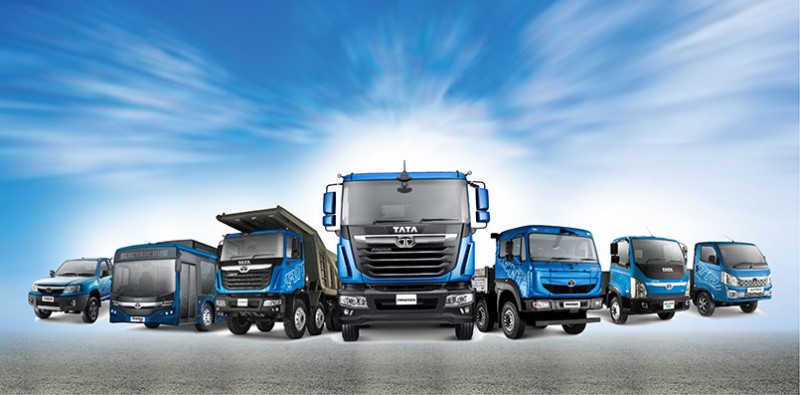
Tata Motors is setting its sights on capturing a larger share of India's passenger vehicle market, with plans to boost its current 14% share to between 18% and 20% over the next 2 to 3 years. This growth strategy will be underpinned by the introduction of new vehicle models in both the internal combustion engine (ICE) and electric vehicle (EV) segments. The company also intends to expand its network of EV-exclusive showrooms and significantly enhance charging infrastructure across the country by 2030.
In an investor presentation on Tuesday, Tata Motors, India's third-largest passenger vehicle manufacturer by sales, outlined its ambitious growth plans. The company aims to achieve a substantial increase of 400-600 basis points in market share, leveraging new brand launches in both ICE and EV segments.
To accelerate the adoption of electric vehicles, Tata Motors plans to implement a comprehensive strategy focusing on product development, technology enhancement, accessibility, charging infrastructure, and cost reduction. The goal is for EVs to contribute 20% of its total passenger vehicle sales by the financial year 2030.
"We anticipate outpacing industry growth rates through the introduction of new vehicle brands and advancements in powertrain technology," Tata Motors stated in its presentation. Despite a modest projected growth of 3-5% in the ICE segment this year, the company maintains a strong 72% market share in electric cars, although monthly sales growth has slowed.
The expanded product portfolio is expected to address 80% of the market demand. Tata Motors has set ambitious financial targets, aiming for a 10% EBITDA margin and positive free cash flow from its consolidated passenger vehicle and EV businesses by 2030. The introduction of new vehicle brands is projected to drive increased volumes, operational efficiencies, and higher revenues across its passenger vehicle and EV segments, enhancing overall portfolio realizations. The company is optimistic about improving EV profitability with expected declines in battery prices.
In line with its strategy to promote mainstream adoption of EVs in India, Tata Motors plans to launch several new EV models, including the Curvv.ev and Harrier.ev Sierra in FY25, followed by the Sierra.ev and Avinya in FY26. These models are designed to address key consumer concerns regarding range and technology, boasting over 300 km of range and advanced features such as vehicle-to-vehicle charging.
Tata Motors also intends to scale up its network of EV-exclusive showrooms from the current two to 50 over the next few years. Simultaneously, the company plans to expand public charging stations from 10,000 in FY24 to over 100,000 by FY30 and community charging stations from 4,300 to over 100,000 during the same period. This expansion aims to enhance the overall EV charging infrastructure across India significantly.
Moreover, Tata Motors plans to leverage synergies between EVs and solar energy by offering bundled EV and solar rooftop solutions to customers. This initiative is designed to provide tangible financial benefits to consumers while promoting both EVs and solar rooftops in tandem.
By pursuing these ambitious initiatives, Tata Motors aims to strengthen its position in the Indian passenger vehicle market, particularly in the rapidly growing EV segment.